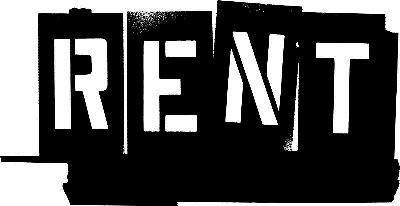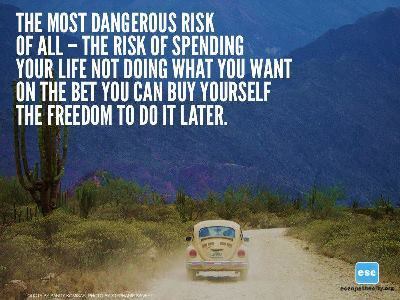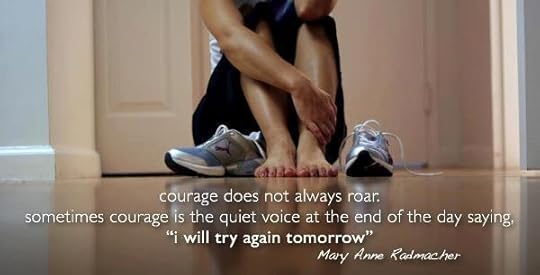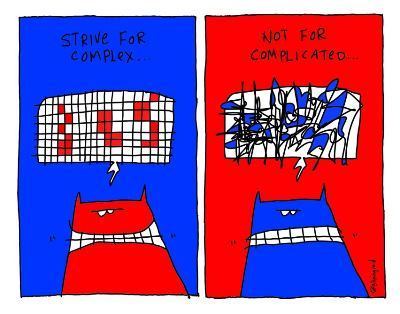Jeremie Averous's Blog, page 130
September 26, 2013
The End of Ownership
The Fourth Revolution is about the end of ownership as we know it traditionally. At least it is the trend for may of the amenities that we use on a day-to-day basis. Instead of owning, we rent. When we own, we share.
 We don’t own any more our music, our films – we rent them. In many towns people rent on an as-needed basis their transportation means: bicycles and cars – instead of owning them. In electrical cars we will probably rent the batteries instead of owning it – and exchange it instead of loading it. We won’t probably even own the car but lease it and share it.
We don’t own any more our music, our films – we rent them. In many towns people rent on an as-needed basis their transportation means: bicycles and cars – instead of owning them. In electrical cars we will probably rent the batteries instead of owning it – and exchange it instead of loading it. We won’t probably even own the car but lease it and share it.
When we don’t rent, the trend is to share in an effective manner – hence the services such as Airnb (sharing apartments or couches), or services that propose to share cars during the day instead of leaving them in the office parking…
This is all made possible by the online platforms made available by internet, powered up by mobile ubiquity. The number of these platforms is increasing at a rapid pace. Those that can offer a great quality of service thrive. These platforms lower the time and cost for coordination with other users. Our preferences can be known that optimize what’s available and even offer useful suggestions.
Not only will this trend decrease the number of items we will need collectively, it will result in less waste. It also means that our choices increase dramatically – owning, sharing or renting.
There are still certainly a lot of still unidentified opportunities in renting instead of buying, or sharing those amenities we use on a day-to-day basis. Any idea?
September 24, 2013
Steve Jobs, Insanely Driven (Video)
Steve Jobs was an exceptional individual, and quite insanely driven. He must have been tough to work with! This interesting 1h BBC video about his life show how much he was driven by his own idea, and regularly took the market by surprise, coming from unexpected sides.
(Follow the link if you don’t see the video)
The first minutes about his education and the origin of his philosophy very close to the hippy approach (“taking LSD was one of the most important things in my life” he says) are quite fundamental to understand his drive to change the world. They are possibly the most interesting of the video (the rest we generally have heard already).
However the revelation that he tried to fight cancer using unconventional means, which only delayed surgery and allowed the cancer to spread, is also showing the other side of excessive drive.
Take the time to re-discover why and how Steve Jobs did what he did. That’s quite instructive.
Hat tip to Mitch Joel from his blog post Insane Ambition.

September 21, 2013
Why You Need to Reboot Your Life
Mitch Joel is a well known blogger, founder of a marketing agency specialized in social media. He published a few months ago his new book, ‘Ctrl Alt Delete: Reboot Your Business. Reboot Your Life. Your Future Depends on It‘.
This book is excellent and is based on very much the same philosophy as the Fourth Revolution. An entertaining slideshow and even a video are available to explain the basic concept of the book (and take an other view on the Fourth Revolution!). Enjoy!
25+ Mind Blowing Stats About Business Today – CTRL ALT Delete from mitchjoel
So, are you ready to hear that you need to change to remain employable in 5 years?

September 19, 2013
Why You Should Stop Asking for Permission
In the Industrial Age we’ve been raised to ask for permission before doing anything. That was part of our basic education as polite and obedient workers.
 The thing is, nowadays and as at any time, to create great stuff, it is essential not to ask for permission.
The thing is, nowadays and as at any time, to create great stuff, it is essential not to ask for permission.
When you are in an organization or any kind of social setting and you have a great idea, if you start asking for permission, you’ll never get it or you’ll become upset before you get it.
Practice the Jesuit saying: “It is much easier to ask for forgiveness than to ask for permission“!
Just go and do it. Even if it means diverting some resources here and there. If the idea is good they’ll follow.
The next time you’ll realize you are about to ask for permission, pause a second and ask yourself if that’s really the right thing to do!

September 17, 2013
Why Don’t You Start What You Want to Do NOW?
The quote on this picture I encountered in internet by chance struck me.
 Indeed it is a great risk of spending your life not doing what you want on the consideration you can buy yourself the freedom to do it later.
Indeed it is a great risk of spending your life not doing what you want on the consideration you can buy yourself the freedom to do it later.
It assumes a bet on life, on the future. Some people indeed work like mad looking for an enjoyable retirement without ever taking advantage of it.
Is it really the most dangerous risk of all? In terms of personal balance it is certainly a great risk. Still sometimes it is great to have the possibility to take advantage of available opportunities to fund or prepare a future venture. I don’t think it is a problem if it corresponds to a clearly defined period that does not exceed a pair of years, and relates to a clear plan.
If you are like me, it is still good to remember sometimes that it is important to take advantage of the present moment and not bet everything on the future in particular further than a few months away.

September 14, 2013
Why We Should Strive for Complex, but not for Complicated
I loved this Gapingvoid cartoon by Hugh McLeod. Remember first why Complex is not the same as Complicated.
Complex is intrinsic. Something is complex if it involves a lot of moving parts, even at its most basic.
Complicated is extrinsic. Something is made complicated by external factors, made complicated by stuff that’s non-essential.
Even the most simple of lives are complex… so much that can go wrong, so much needing taken care of. That doesn’t give one an excuse to make things more complicated than they need be. In fact, the opposite is true, especially in business.
Add to this that in a complex world, good (and bad) surprises and discontinuities can appear that can be exploited as opportunities.
So, when do you ditch Complication for Complexity in your life?

September 12, 2013
What Luck is Really About
“Victory awaits him, who has everything in order – Luck we call it. Defeat is definitely due for him, who has neglected to take the necessary precautions -Bad Luck we call it” – Roald Amundsen.
[image error]
“Lucky” Amundsen at the South Pole – December 1911
Amundsen is known to be the leader of the first successful expedition to the South Pole, beating Scott who was comparatively very ill-prepared and died on the return journey (after the heart-breaking discovery of Amundsen’s Norwegian flag at the South Pole!).
This probably summarizes a philosophy of luck that many of us should adopt as a general approach to life!

September 10, 2013
Why Large Modern Organizations are Handicapped when it Comes to Adaptation
An interesting short e-book from the Boston Consulting Group, ‘Adaptative Advantage: winning strategies for uncertain times‘ by Martin Reeves, addresses the issue of adaptation (and innovation) in large organizations.
Large organizations need to be especially aware of the challenges they are likely to encounter in developing adaptative capabilities. Classical approaches to managing scale – delegation and specialization – can be highly efficient under stable conditions, but the hierarchical structures they produce are too rigid for the rapid learning and change required in turbulent environments.
A narrow focus on leanness, too, can impede adaptability. Under pressure from competition and capital markets, some large companies have squeezed out not only inefficiency but also the diversity and variation needed to adapt to rapid change. What’s more, once adaptative capabilities in highly structured and specialized organizations have atrophied, they can be challenging to recreate.
In summary, the search for maximum optimization and scalability is bad for adaptation because it squeezes out all the resources and organizational levers that would be needed for adaptation.
This is just why so many large organizations and institutions will not survive the Fourth Revolution. This is why successful organizations will seek to be sub-optimized, to remain reactive, constantly changing and adaptative.

September 7, 2013
Do You Have the Courage of Persistence?
In the post “What’s Your Brand of Courage“, Danny Iny insists upon the different brands of courage: either the fiery exuberant type, or the day-to-day persistent type.
Which one is the most effective? Except in a few occasion (which should not be underestimated as sometimes lives can be deeply changed in those rare events), it is probably the persistence courage that is probably the most important to achieve our goals.

Will YOU try again tomorrow?
This quote by Mary Anne Radmacher that Danny Iny’s refers to made a great impression on me. Courage is indeed often the quiet voice at the end of the day saying “I will try again tomorrow“. It is courage against complacency, the courage to build up something stone after stone, step after step.
Those of us that show this courage of persistence are possibly more courageous overall than those heroes society shows us on film, books or TV. It’s less glamour, but it’s what changes the world.
Remember. When you’re persistent, you show great courage. Be proud!

September 5, 2013
When Imitated, it Means You’re on the Right Track! Persist!
Following on our blog post about competition, most people tend to get angry, frustrated and fearful when they realize what they are doing is being imitated. Wrong! That’s absolutely fantastic! It just means that what you are doing is so great that people believe it is worth imitating!

When imitated, that’s great news. Don’t retaliate, innovate more!




